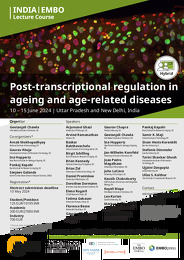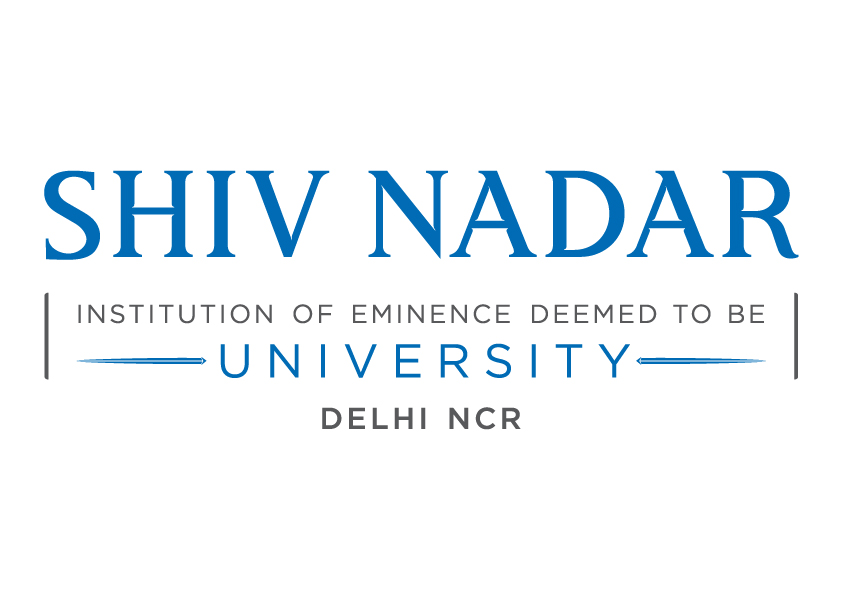About the India-EMBO Lecture Course
Ageing is a risk factor for a broad spectrum of diseases and is accompanied by transcriptional, metabolic and phenotypic changes. The exploration of novel avenues is key for the development of interventions enhancing lifespan and delaying the onset of age-related morbidities. This includes the assessment of how aberrant expression of RNAs, proteins, metabolites, and their modifications can cause or result from ageing and age-related conditions.
This India|EMBO Lecture Course will bring together national and international experts to share novel research trends— beyond transcription—in the regulation of healthy ageing and age-associated diseases. The research presentations will range from molecular explorations and genetic screening to whole-organismal phenotypic assessment. The topics covered will provide a balanced view on post-transcriptional mechanisms that are involved in the regulation of ageing and age-related diseases, such as cancer, cardiovascular and neurodegenerative diseases and will include RNA-binding proteins, non-coding RNAs, Proteostasis, AI, Omics, and Systems biology approaches.
The course will encompass four poster sessions corresponding to each topic. The duration of each poster session will be 90 minutes. All poster presenters will upload the poster together with a 3-minuted narrated flash talk describing their posters and eight abstracts will be selected for platform presentation. Submission of an abstract is required for consideration for a travel award.
This India|EMBO Lecture Course will bring together early-stage and experienced researchers to exchange ideas, evaluate recent advances and technologies, and establish synergies in the fields of RNA and ageing biology.
Image Credit: Geetanjali Chawla (SNIoE)
About EMBO Courses and Workshops
EMBO Courses and Workshops are selected for their excellent scientific quality and timelines, provision of good networking activities for all participants and speaker gender diversity (at least 40% of speakers must be from the underrepresented gender).
Organisers are encouraged to implement measures to make the meeting environmentally more sustainable.










